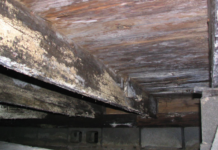Screw machine shops play a pivotal role in the landscape of custom manufacturing, particularly in industries where precision is not merely desirable but essential. These specialized facilities leverage advanced machining techniques to produce high-quality components that meet the stringent demands of various sectors, including aerospace, medical, automotive, and electronics. This article explores the journey from blueprint to precision, highlighting the significance of screw machine shops in delivering custom-manufactured parts.
Understanding Screw Machining
Screw machining refers to a manufacturing process that involves creating components from a solid metal bar through the removal of material using cutting tools. This technique is particularly well-suited for producing high-volume parts with intricate designs and tight tolerances. The process typically involves the use of automatic lathes, which can be either conventional or numerically controlled (CNC), allowing for high efficiency and repeatability in production.
The primary objective of a screw machine shop is to achieve exceptional precision while minimizing waste. The components produced can range from simple screws and nuts to complex assemblies that require exact specifications. The operators in these shops, known as screw machine operators, are skilled professionals who ensure that each part meets the necessary quality standards.
The Importance of Precision
In industries such as aerospace and medical, the precision of machined parts is critical. A slight deviation in dimensions can lead to catastrophic failures or compromised safety. For instance, in aerospace applications, every screw and bolt must fit perfectly to ensure the structural integrity of aircraft. Similarly, in the medical field, devices such as surgical instruments and implants require meticulous precision to function correctly and safely.
Screw machine shops employ rigorous quality control measures throughout the manufacturing process. This includes the use of advanced measuring equipment to verify that each part adheres to specified tolerances. The commitment to precision not only enhances the reliability of the components but also ensures that they perform optimally in their respective applications.
Technological Advancements in Screw Machining
The evolution of technology has significantly transformed screw machining. Modern screw machine shops utilize CNC technology, which allows for unparalleled precision and flexibility in manufacturing. CNC machines can be programmed to execute complex machining operations, enabling the production of intricate geometries that were previously difficult or impossible to achieve.
Additionally, advancements in materials science have expanded the range of materials that can be effectively machined. Common materials used in screw machining include various alloys of steel, aluminum, brass, and copper. Each material offers unique properties that make it suitable for specific applications, such as corrosion resistance or strength.
Applications Across Industries
Screw machine shops cater to a diverse array of industries, each with unique requirements for precision machined parts.
- Aerospace: Components produced in screw machine shops are integral to aircraft safety and performance. Parts such as fasteners, brackets, and structural components must meet rigorous standards to ensure flight safety.
- Medical: The medical industry relies heavily on screw machining for the production of surgical instruments, implants, and diagnostic equipment. The precision of these components is vital for patient safety and effective treatment outcomes.
- Automotive: In the automotive sector, screw machine shops manufacture a variety of parts, including fasteners, fittings, and precision components that contribute to vehicle performance and safety.
- Electronics: The electronics industry requires precision machined parts for devices ranging from consumer electronics to complex industrial machinery. Components such as connectors and housings must be manufactured to exact specifications to ensure functionality.
The Future of Screw Machine Shops
As industries continue to evolve, the demand for high-quality, precision machined components is expected to grow. Screw machine shops are poised to adapt to these changes by embracing new technologies and methodologies. For instance, the integration of automation and robotics into the machining process can enhance efficiency and reduce production times.
Moreover, the increasing emphasis on sustainability in manufacturing is prompting screw machine shops to adopt eco-friendly practices. This includes optimizing machining processes to reduce waste and energy consumption, as well as utilizing recyclable materials whenever possible.
Conclusion
From blueprint to precision, screw machine shops serve as the backbone of custom manufacturing, providing essential components that drive innovation and safety across various industries. Their commitment to precision, coupled with advancements in technology, positions them as critical players in the manufacturing landscape. As industries continue to demand higher quality and more complex components, screw machine shops will remain at the forefront, ensuring that the parts produced meet the highest standards of excellence.









